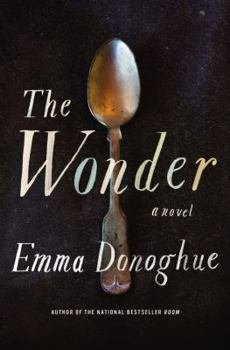The Wonder by Emma Donoghue (and the excellent Netflix adaptation of the novel) attempts to unravel a phenomenon based on nearly fifty cases of so-called “Fasting Girls” in the historical record from the 15th to the 20th centuries. In the Middle Ages, the ability to survive without food was attributed to some saints and was regarded as a miracle. But Fasting Girls are cases when local young women and girls claimed to starve themselves, sometimes for months at a time, and essentially became minor regional celebrities without being canonized as a saint. Cases were reported both in the U.K. and the U.S., particularly in the 19th century. Scholars have observed many of the young women were poor, from humble backgrounds, lived in relatively isolated rural areas, and ranged in age from 15 to 70.
These Fasting Girls often claimed to be sustained by God himself, suggesting that their survival without nourishment was the result of divine intervention. Their claims also had other religious elements. Many claimed to possess psychic powers and some showed signs of stigmata, which critics attributed to either fraud and/or hysteria on the part of the young woman. Some of them came to have an almost saint-like reputation and command religious devotion, with believers regarding their causes as miraculous. In other circumstances, the young women were exposed as fakes, and in extreme cases, the young women died. This included one young woman whose parents were convicted of manslaughter. Some contemporary psychologists and historians claim the Fasting Girls phenomenon could be a precursor to the condition now known as anorexia. Most typically seen in pre-teen girls, the troubling trend was common enough that between 1870 and 1878, the British Medical Journal ran articles titled “The Welsh Fasting Girl,” “Another Fasting Girl,” and “Yet Another Fasting Girl.”
So while the characters in The Wonder are not based on real people, the story is firmly rooted in history. “I was instantly intrigued by these cases,” Donoghue shared on her website, “which seemed to echo medieval saints starving as an act of penance, and also modern anorexics, but weren’t exactly the same as either. It seemed to say a lot about what it’s meant to be a girl in many Western countries.”
Donoghue’s novel is extremely well-written and psychologically tense, with a dark and unsettling tone. Without curses, graveyards, shadowy castles, ghosts haunting candle-lit hallways, ravens or other death omens, The Wonder doesn’t fit my previous definition of a Gothic novel. Yet as I thought about it more, the claustrophobia, uncertainty, threat of supernatural events in the novel – all building to greater fear and horror – are a perfect example of Gothic literature. This is the novel that you read if you want to unsettle yourself with a religious mystery. Especially through the second half of the book, I couldn’t put it down.
Beyond the tone, one of the novel’s greatest strengths is that it has several complex, well-developed characters. The character Lib Wright is a stalwart 19th-century English nurse who has served as a nurse in the Crimean War under Florence Nightingale. That experience should have been formidable training for anything else life could throw at her, yet didn’t prepare her to deal with the bizarre situation of caring for Anna O’Donnell. Lib is sent to the Irish Midlands to observe Anna, a deeply religious 11-year-old girl who claims she hasn’t eaten in four months and exists solely on “manna from heaven.” Working alongside a nun who has been trained in nursing, Lib is meant to help determine whether Anna truly is a miracle-worker, or if the whole thing is a complex deception. Both Lib and the reader must puzzle over the mystery of not only what is going on, but the mystery of Anna herself. Who is she and why is she starving herself? Is she complicit in a hoax, and if so, why? Also among the most interesting and important characters is a determined journalist who is desperate for a story, but who thankfully turns out to be a trustworthy and reliable ally to Lib and Anna.
Unfortunately, I quickly developed an intense dislike for the uppity Lib, who is quite frankly a snot for the first half of the book. But as the situation intensifies, Lib is changed. Anna’s ongoing survival without nourishment is interpreted by some neighbors and people from nearby communities as a religious miracle; pilgrims begin journeying to visit the pious young girl in order to feel closer to the divine. As Lib cares for Anna and observes the visitors, she is shaken by the ignorance and resignation of the girl’s family and local community. Much to her own surprise, the originally overconfident and aloof Lib comes to care about and feel protective of Anna. As her relationship with the girl changes her perspective, Lib becomes a more generous, warm-hearted, passionate character. In fact, she directly confesses to Anna near the end of the novel, “You’ve changed me.”
After slowly building tension for the first half of the book, the plot crescendos in a number of unexpected ways. Watching Anna grow weaker and weaker, Lib struggles to understand what is going on. Finally, she comes to the point where she feels she can no longer sit by and watch Anna starve herself while her family and community do nothing. I was rooted to the spot as I read, hoping that Lib would somehow be able to free Anna from this horrifying situation, from whatever hysteria was inspiring her to starve herself. Without giving away the end of the novel, I’ll just say that I found the ending of The Wonder to be very satisfying. Emma Donoghue has written yet another five-star novel.



This website was created with a lot of love, Coke Zero, and tacos by Kumquat Creative.